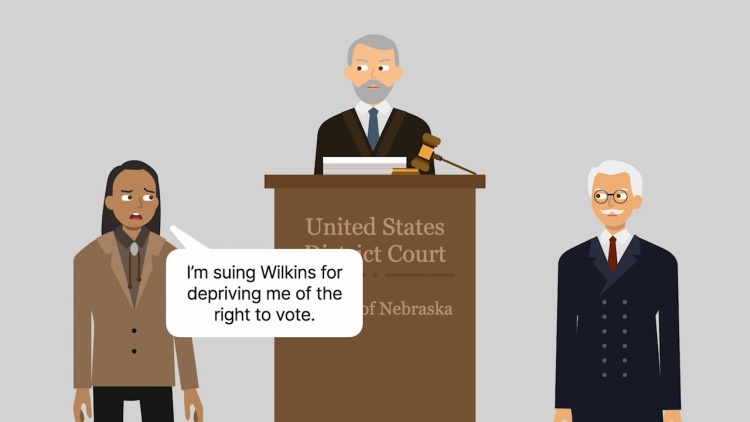Elk v. Wilkins
United States Supreme Court
112 U.S. 94 (1884)
- Written by Tammy Boggs, JD
Facts
John Elk (plaintiff), an Indian, was born on an Indian reservation within the territorial limits of the United States. Eventually, he completely severed his tribal ties and lived among the non-Indian citizens and residents of Omaha, Nebraska. In adulthood and after at least six months of living in Omaha, Elk sought to vote in the general city election. He was denied the right to vote on the basis that he was Indian and not an American citizen. Elk sued the registrar, Charles Wilkins (defendant), in federal court in Nebraska, claiming that he was a citizen and that his rights under the Fourteenth and Fifteenth Amendments of the United States Constitution had been violated. The trial court ruled in Wilkins’s favor, and Elk appealed to the United States Supreme Court.
Rule of Law
Issue
Holding and Reasoning (Gray, J.)
Dissent (Harlan, J.)
What to do next…
Here's why 899,000 law students have relied on our case briefs:
- Written by law professors and practitioners, not other law students. 47,000 briefs, keyed to 994 casebooks. Top-notch customer support.
- The right amount of information, includes the facts, issues, rule of law, holding and reasoning, and any concurrences and dissents.
- Access in your classes, works on your mobile and tablet. Massive library of related video lessons and high quality multiple-choice questions.
- Easy to use, uniform format for every case brief. Written in plain English, not in legalese. Our briefs summarize and simplify; they don’t just repeat the court’s language.





